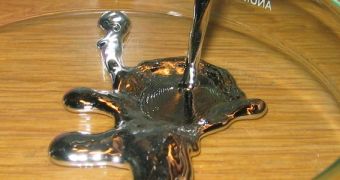After studying aquatic mercury concentrations in the European and American portions of the Arctic, researchers concluded in previous investigations that the amount of this dangerous chemical present in these waters was very high, and increasing in fish populations as well. A new study shows that this does not happen throughout the Arctic.
Researchers at the Virginia Institute of Technology (Virginia Tech) demonstrate in a new paper that the Russian Arctic, which encompasses the vast majority of the pan-Arctic watershed, is actually experiencing declining levels of mercury. The study team included experts from the US, Canada and Russia, AlphaGalileo reports.
“It turns out that the economic decline of the former Soviet Union, which collapsed in 1991, appears to have been good for the Arctic environment in that part of the world,” says Virginia Tech Assistant Professor of Fish and Wildlife Conservation, Leandro Castello, who is also the first author of a paper published in the December 20 issue of the top journal Environmental Science & Technology.
Mercury contamination variations in the Arctic “may be explained by differences in water quality, geological bedrock formations, and proximity to polluting sources,” researchers write in their study. Mercury is very toxic for the human brain, and it is usually concentrated in the largest predatory species living in marine ecosystems.

 14 DAY TRIAL //
14 DAY TRIAL //